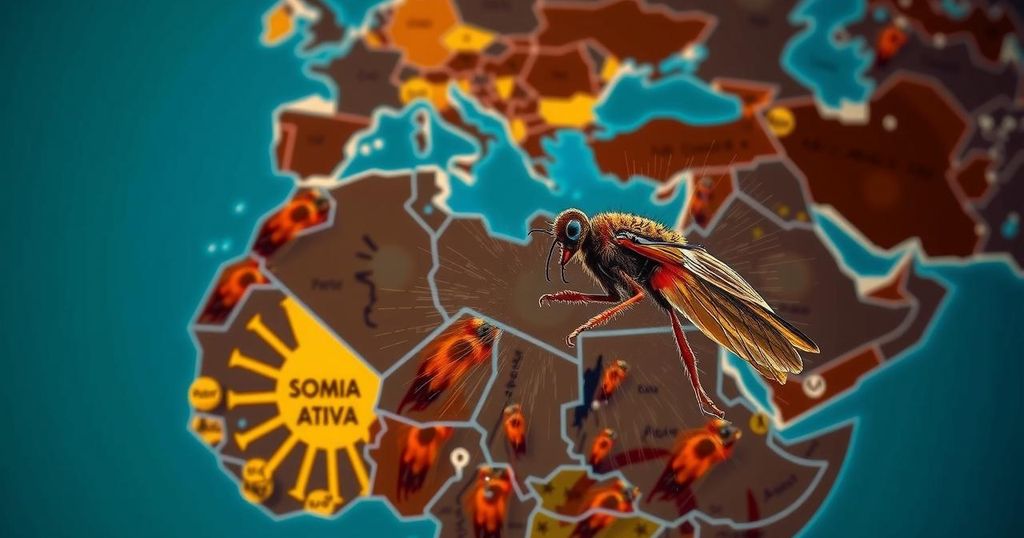Uganda faces a high risk of polio outbreaks, particularly due to a strain linked to Somalia. More than 3.2 million children have been vaccinated following an outbreak in Mbale City. Health officials, including WHO representatives and the Minister of Health, stress the need for intensified efforts to reach unvaccinated children to prevent further spread. Rotary Uganda highlights the importance of collaborative efforts in this fight against polio.
Recent insights from Dr. Annet Kisakye, a senior scientist at the World Health Organization (WHO), indicate that Uganda remains at a considerable risk of polio outbreaks due to a significant number of unvaccinated or under-vaccinated children. The emergence of a polio outbreak in Mbale City, originating from a strain linked to Somalia, has highlighted the urgent need for vaccinations across the region. According to Dr. Kisakye, while Uganda has made commendable efforts in combating polio through extensive immunization campaigns, the threat persists, especially with the potential for the virus to mutagenize in unvaccinated environments. Efforts to combat this outbreak have intensified, with the Ugandan Ministry of Health reporting that more than 3.2 million children have been vaccinated following the outbreak. Dr. Jane Ruth Aceng, the Health Minister, emphasized the necessity for collective action from government bodies, communities, and international partners to eradicate the virus completely. Initiatives include targeting high-risk mobile populations, such as refugees, and conducting vaccination campaigns in collaboration with neighboring Kenya. Voices from Rotary Uganda echoed this call for increased vaccination efforts, reinforcing the commitment to achieving a polio-free future. Ms. Anne Nkutu, District 9213 governor of Rotary Uganda, remarked that Rotary International’s dedication has nearly brought the world to the brink of eliminating polio. Meanwhile, District 9214 governor nominee Milton Ddamulira urged communities to increase immunization efforts. Health Minister Aceng reiterated the importance of maintaining vigilance against polio and ensuring that vaccination reaches every child, stating, “we need to get rid of polio from the world and Ugandans need to work very hard for this to happen.” As awareness grows, Rotary Uganda, alongside the government, continues to advocate for unified action toward eradicating polio and ensuring no child suffers from the disease’s debilitating effects.
Polio, a highly infectious viral disease primarily affecting children, can result in paralysis and even death. Despite significant strides in vaccination leading to a reduction in cases globally, the re-emergence of vaccine-derived poliovirus strains continues to pose risks, as seen during the recent outbreak in Uganda. Reports indicate that a strain linked to Somalia was responsible for the Mbale City outbreak, signaling ongoing vulnerabilities, particularly among unvaccinated populations. Efforts to eradicate polio are ongoing, amplified by partnerships with organizations such as Rotary International, WHO, and UNICEF, reinforcing the critical need for comprehensive immunization initiatives to protect vulnerable children.
In summary, the current polio outbreak in Uganda, linked to a strain from Somalia, underscores the ongoing risks posed by unvaccinated children. The Ministry of Health, alongside WHO and Rotary Uganda, is mobilizing significant efforts to vaccinate millions of children to combat this threat. The unyielding commitment to eradicate polio highlights the need for sustained vigilance and reinforced community health initiatives. Health Minister Dr. Aceng’s call to action emphasizes the collective responsibility required to ensure a polio-free future for all.
Original Source: www.monitor.co.ug






